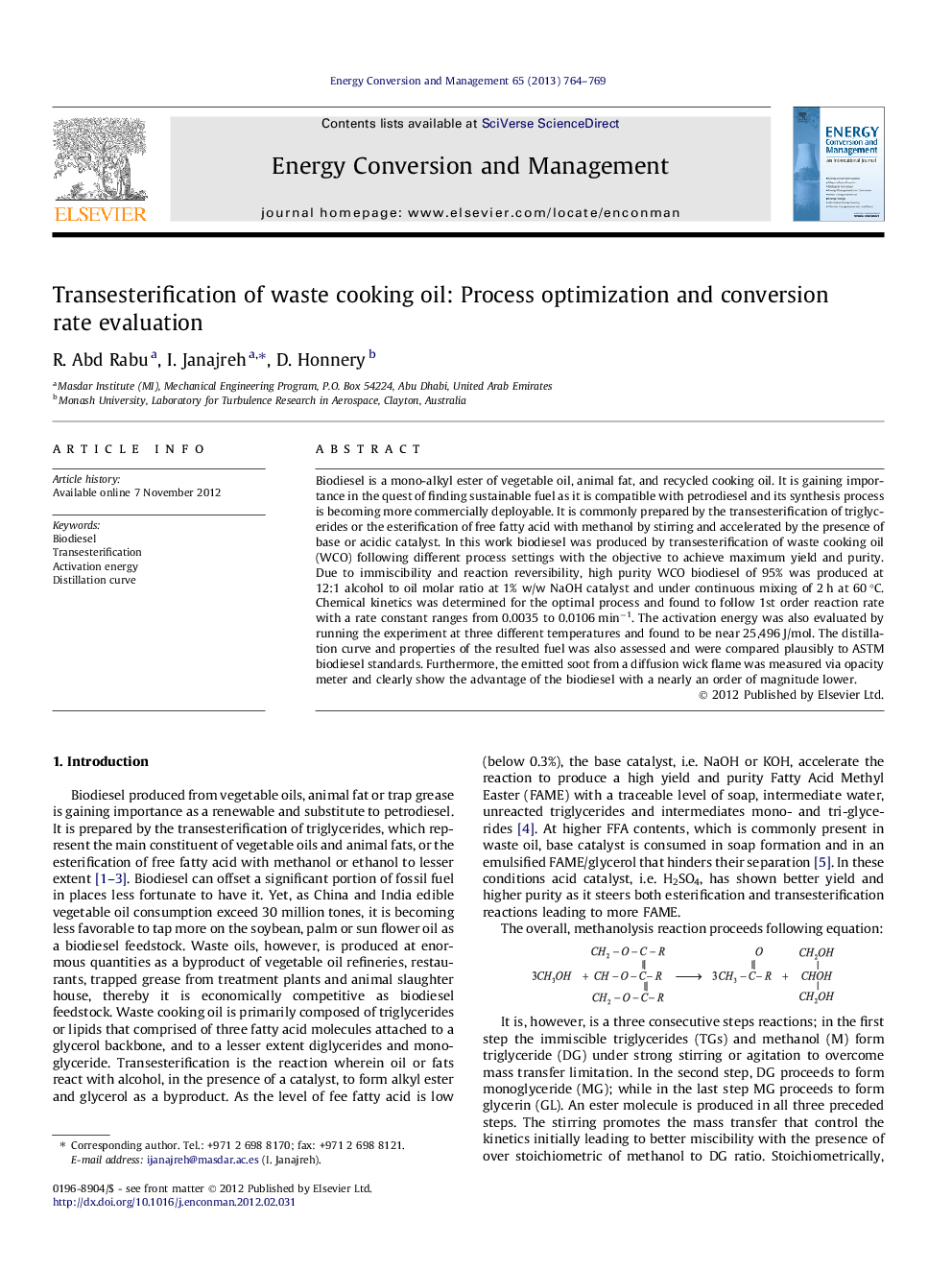| Article ID | Journal | Published Year | Pages | File Type |
|---|---|---|---|---|
| 761074 | Energy Conversion and Management | 2013 | 6 Pages |
Biodiesel is a mono-alkyl ester of vegetable oil, animal fat, and recycled cooking oil. It is gaining importance in the quest of finding sustainable fuel as it is compatible with petrodiesel and its synthesis process is becoming more commercially deployable. It is commonly prepared by the transesterification of triglycerides or the esterification of free fatty acid with methanol by stirring and accelerated by the presence of base or acidic catalyst. In this work biodiesel was produced by transesterification of waste cooking oil (WCO) following different process settings with the objective to achieve maximum yield and purity. Due to immiscibility and reaction reversibility, high purity WCO biodiesel of 95% was produced at 12:1 alcohol to oil molar ratio at 1% w/w NaOH catalyst and under continuous mixing of 2 h at 60 °C. Chemical kinetics was determined for the optimal process and found to follow 1st order reaction rate with a rate constant ranges from 0.0035 to 0.0106 min−1. The activation energy was also evaluated by running the experiment at three different temperatures and found to be near 25,496 J/mol. The distillation curve and properties of the resulted fuel was also assessed and were compared plausibly to ASTM biodiesel standards. Furthermore, the emitted soot from a diffusion wick flame was measured via opacity meter and clearly show the advantage of the biodiesel with a nearly an order of magnitude lower.
► The highest purity of the produced biodiesel determined by gas chromatography was 95%. ► Produced biodiesel samples fell within the requirements of American standard for biodiesel. ► The reaction order is 1st order with a rate constant of 0.01 min-1 in the above point min-1.
